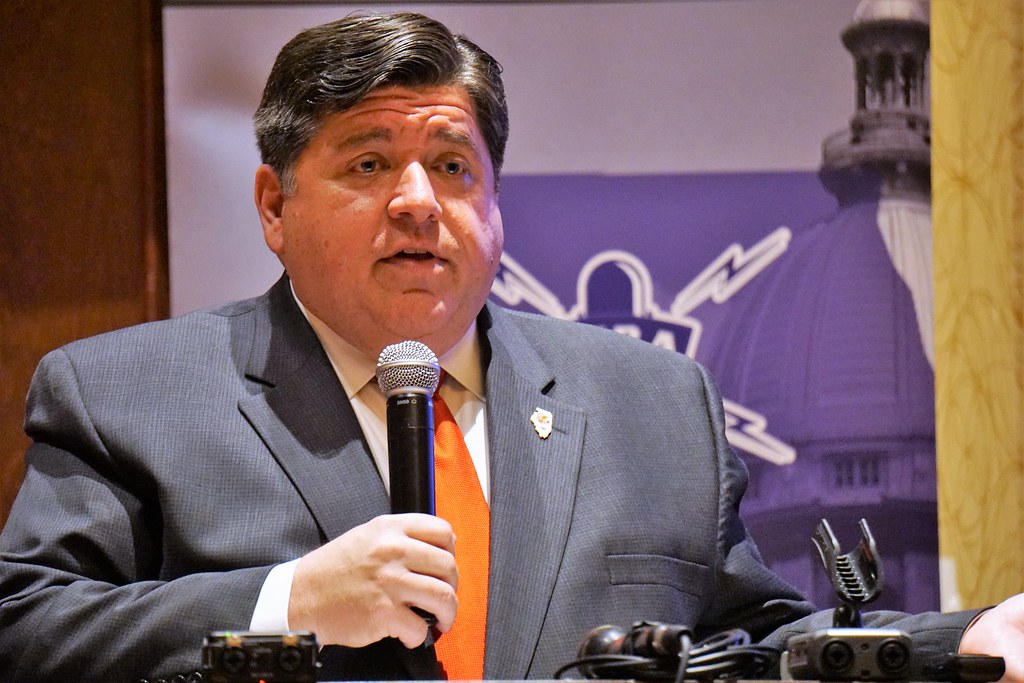By Justin Carlson
A typical middle-class family in Illinois faces the highest tax burden of all 50 states and a pandemic recovery that lags the nation, so what have Illinois’ elected leaders decided to do about it?
Handed billions of dollars in federal pandemic relief, Gov. J.B. Pritzker and the Illinois General Assembly passed a budget that provides tax relief of $556 for the typical family. Most of it expires by this time next year.
Hooray?
While $556 is better than nothing, the changes mainly serve to let Pritzker air re-election ads touting his “relief plan.” He also made sure his largesse was noted through mandatory signs at grocery stores and on gas pumps.
A quick glance at the map shows Pritzker should be anything but proud. In the wake of the COVID-19 pandemic, 33 states, including most of Illinois’ neighbor states, have made long-term changes to help grow their economies. They’ve implemented permanent, pro-growth reforms and tax relief for their residents and businesses.
Illinoisans already pay the second-highest property tax in the nation, live under the most units of local government, face the worst pension crisis in the nation and failed to recover 136,400 jobs lost to the pandemic. They need real relief, not gimmicks.
It gets worse when tallying how high taxes have risen since Pritzker took office. Illinois families have paid a total of $2,721 in higher taxes since Pritzker imposed 24 tax and fee hikes in 2019. All together with this year’s “relief,” that leaves the average family with a net tax hike of $2,165 in four years.
Among those tax hikes was doubling the state gas tax to 38 cents from 19 cents, and adding an automatic annual increase.The gas tax is expected to reach 45 cents by July 2023. But part of Pritzker’s election gimmick is a six-month temporary delay on the next automatic gas tax hike until Jan. 1, 2023, after his re-election campaign is over.
It doesn’t have to be like this.
Here’s what Illinois could learn from its neighbors.
Indiana
Despite their already competitive income tax rate, Indiana continues to pursue an even more competitive tax system, having recently passed legislation to reduce its income tax rate from 3.23%, already the third-lowest rate in the country, to 3.15% in 2023 and 2024. It is scheduled to drop to 2.9% by 2029, so long as certain economic and fiscal conditions are met.
Iowa
Iowa enacted sweeping tax reforms this year that make its tax system more competitive. Once the current reforms are phased in, Iowa will have a single income tax rate of 3.9%. Previously, they had a nine-level income tax with a top rate of 8.98%. The new rate is less than half that. The state will also boast a 5.5% flat corporate tax rate, no alternative minimum taxes and the elimination of the state’s inheritance tax. Once these reforms are adopted, Iowa could improve its Business Climate Tax Index position from 38th to 15th, leaving Illinois in last place.
Kentucky
Kentucky’s legislature recently passed tax reform proposals over the veto of Gov. Andy Beshear. The reforms lower the current flat income tax rate to 4.5% from 5% in 2023. It also creates a trigger for automatic, one-half percent rate cuts when state funding reserves are maintained and revenue exceeds spending.
Wisconsin
This one is forthcoming. Rebecca Kleefisch, one of Gov. Tony Evers’ potential opponents in the upcoming election, has said making “transformational income tax reform” is her top priority, along with ending the state’s tax on retirement income. She says those changes are necessary for Wisconsin to compete with neighboring states, adding the potential for even more serious tax competition for Illinois in the years ahead.
When Illinois hiked taxes in the years following the Great Recession, it stunted the state’s recovery: job creation lagged neighboring states. We must prevent those same mistakes.
Illinois faces unique obstacles — with declining population, high property taxes and the worst pension debt in the nation. The state cannot afford to let politicians get away with the status quo.
It will take more than six months, or even a year, of election gimmicks packaged as temporary tax relief to bring Illinois back to its full potential.
Originally published by RealClearPolicy. Republished with permission.
More great content from Budget & Tax News
